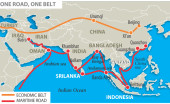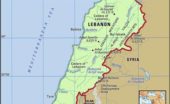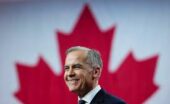Johannah Bernstein post: "eternally proud of my father’s extraordinary aeronautical engineering. legacy. here is a photo of the Canadair Water…
Wednesday Night #1841 with Akaash Maharaj
Written by Diana Thebaud Nicholson // June 21, 2017 // Wednesday Nights // Comments Off on Wednesday Night #1841 with Akaash Maharaj
Join us in celebrating the Summer Solstice – from here on the days get shorter.
Thanks to Gerald Ratzer and other Oxford & Cambridge friends, we will have a very special guest, Akaash Maharaj, CEO of the Global Organization of Parliamentarians Against Corruption (GOPAC) whose Global Secretariat is based in Ottawa and Jakarta.
Akaash Maharaj leads the international alliance of democratically‑elected legislators in its work combating corruption, strengthening good government, and upholding the rule of law. GOPAC, which is present in every region of the world, is working to establish “grand corruption” as a crime at international law, to enable international institutions to pursue, apprehend, prosecute, judge, and ultimately sentence the guilty.
Outside of his professional life, Akaash is an international athlete, and was a triple gold medallist at the International Championships of Equestrian Skill‑at‑Arms.
He earned his MA from Oxford University in Philosophy, Politics, and Economics, and was the first overseas student elected President of the student government in the University’s history.
You should check out his personal website.
On Monday, the U.S. Supreme Court announced that it would consider whether partisan gerrymandering violates the Constitution, potentially setting the stage for a ruling that could for the first time impose limits on a practice that has helped define American politics since the early days of the Republic. Would GOPAC consider gerrymandering a form of corruption?
Congratulations to Emmanuel Macron whose La République en Marche party has won a commanding majority in the National Assembly. Some of the colorful, wildly inexperienced members of France’s new parliament include a female professional athlete, a self-taught cyber guru, and “the Lady Gaga of Math.” However, all is not smooth sailing. President Macron has pledged to clean up French politics and public life but Defense Minister Sylvie Goulard has stepped down over allegations her MoDem party misused European funds. She is the second high-profile minister to go in less than 24 hours. On Monday, Richard Ferrand, minister for territorial cohesion [whatever that is] and the general secretary of Macron’s fledgling political party, resigned after he was put under preliminary investigation for nepotism and financial impropriety. In cases like these, could M. Macron call on GOPAC to ride to the rescue?
Meanwhile, from The Economist: Britain and the EU: Divorce, proceeding
Formal Brexit talks began (on 19 June) amid post-election chaos. Britain’s Brexit department has just lost two of its four ministers. Nobody knows how long Theresa May will remain prime minister. But there is no doubt over when Britain is due to leave: March 29th 2019. The election gave Mrs May no mandate for her “hard Brexit”, and signs of a softer government position are appearing. But an abrupt change of policy is unlikely, writes our Brexit editor
Brexit talks: So how did day one go?
Wednesday Night’s two Davids join the commentariat with an unusually united view. David T. Jones in Brexit: Once More into the Breach opines that “With so many balls in the air and so many options in play, we are still closer to the beginning of the beginning than to any resolution of Europe’s key dilemma for the next several years. Happily, it will be a “jaw-jaw” dispute.” David Kilgour writes in Brexit Brings a Post-UK Election “Any Brexit negotiations beginning this week are likely to lead to an outcome that makes the U.K. much worse than it is now. It is improbable that having decided to leave the EU, the U.K. would want to get into a free trade agreement with no labor mobility. British politicians need to develop now plans for a negotiated outcome, which could keep the U.K. within the EU and give a better outcome than leaving.”
How many remember Wednesday Night 1790 , on the eve of Brexit? Most observers were saying it was too close to call and “a vote to stay in Europe remains odds on with the bookies. After drifting last week in the wake of three polls showing a lead for Leave in one day of poll results, the odds have hardened again.” As there was nothing to be done to influence the outcome of Thursday’s vote and just about every argument had been presented, argued and rehashed, we opted for some literary gems that are worth revisiting.
Theresa May had a particularly rough week in the wake of the tragic Grenfell fire and revelations that experts had warned the government against cladding material used on the building. As The Guardian points out “Much of the blame for the horrific Grenfell Tower disaster has certainly been laid at May’s door, which is useful for the party. … The blame for the tragedy is yet to be determined, but housing policy and health and safety regulations have been neglected by successive governments, of both parties.”
The Grenfell disaster is one of a series of events during the past days, some of which will be blamed on politicians and others on a varying number of individuals and/or organizations. Among them, the sad ending to the story of Otto F. Warmbier, the American student held in North Korea, to the terrorist attack on a tourist resort in Mali on Sunday; the Monday attack on Muslims in North London by a lone individual with a van and the shooting at the Republican baseball practice last Wednesday. Also, the curious story of the USS Fitzgerald. The terrible toll of the wildfires in Portugal has raised concerns with at least one of our European friends that “ ‘terrorists’ might start massive bush or forest fires. Easy to do, not much coordination needed, and spectacular in effect. Also, as is seen now in the Portuguese conflagrations (those apparently started by “dry” lightning strikes) they can kill dozens of people. The fires in many parts of Spain last year, many of which were deliberately set made me wonder about the motives. So far IS , or its bedfellows, hasn’t claimed any responsibility for these.” Not a reassuring thought.
Peaceful Finland has suffered its first terrorist threat (or at least, the first publicly acknowledged one), while the situation in Qatar remains fraught and has now affected even Qatari camels and sheep. And why are we not reassured by the news that renowned international affairs expert Jared Kushner has chosen this moment to head to the Middle East to try to advance U.S. efforts to reach an Israeli-Palestinian peace deal?
For observers of U.S. politics (and who isn’t these days?) Tuesday’s ultra-tight Georgia House seat in a race viewed as an early referendum on President Trump may be a nail-biter. Democrats have rallied from near and far to support Jon Ossoff’s campaign in the suburban Atlanta district vacated by Health and Human Services Secretary Tom Price. The race has become the eye of the political storm since 2016 and Democrats have pulled out all the stops to win a traditionally GOP district that narrowly voted for Trump. Suggested reading: The 15 Best-Educated Districts in the U.S., and Why It Matters in the Georgia Race
UPDATE: Karen Handel Wins Georgia Special Election, Fending Off Upstart Democrat
With 99 percent of precincts reporting, Ms. Handel had 52.6 percent of the vote to 47.4 percent for Mr. Ossoff.
The surprisingly easy victory for Ms. Handel, a former Georgia secretary of state and Fulton County official, averted a humiliating upset for Republicans in an affluent, suburban Atlanta seat they have held for nearly 40 years. And it showed that Republicans skeptical of Mr. Trump remain comfortable supporting more conventional candidates from their party.
Last Friday, Brian Mulroney delivered a keynote address to the Canada 2020 conference on leadership and the past and future of Canada-U.S. trade agreements. It should be required listening (we have not yet found a print version of the text).
On the same topic and also well worth digesting is the June 6 session of the Standing Committee on Foreign Affairs and International Development on the committee’s continuing study of United States and Canadian foreign policy, with guest experts,
Professor Kim Nossal, Centre for International and Defence Policy, Queen’s University and Colin Robertson, Vice-President and Fellow, Canadian Global Affairs Institute: The latter shared his eminently sensible 10 rules of the road that we Canadians should apply in managing Mr. Trump and the U.S. relationship.
Something to add to our continuing topic of climate change and the debate over the role of renewables.
The Race to Solar-Power Africa
American startups are competing to bring electricity to communities that remain off the grid.
and, thanks to Terry Jones for pointing out
Evaluation of a proposal for reliable low-cost grid power with 100% wind, water, and solar
“A number of studies, including a study by one of us, have concluded that an 80% decarbonization of the US electric grid could be achieved at reasonable cost (1, 2). The high level of decarbonization is facilitated by an optimally configured continental high-voltage transmission network. There seems to be some consensus that substantial amounts of greenhouse gas (GHG) emissions could be avoided with widespread deployment of solar and wind electric generation technologies along with supporting infrastructure.”
For your calendar:
Diana Bruno advises that the Montreal Camera Club is celebrating its 125th anniversary this year with an exhibition at the McClure Gallery of the Visual Arts Centre, 350 Victoria Avenue in Westmount. It runs from June 20-22 and June 26-29. Gallery hours are from noon to 6 p.m.
The show features more than 100 photographs by over 55 current members [Diana has 2 prints in the show] and what’s really interesting, a historical section including archival prints, even a portrait of the first president, a McGill professor of botany! Among prominent Montreal members in the club’s early years were William Notman, William McFarlane Notman, and Frank Robert Redpath. Details



